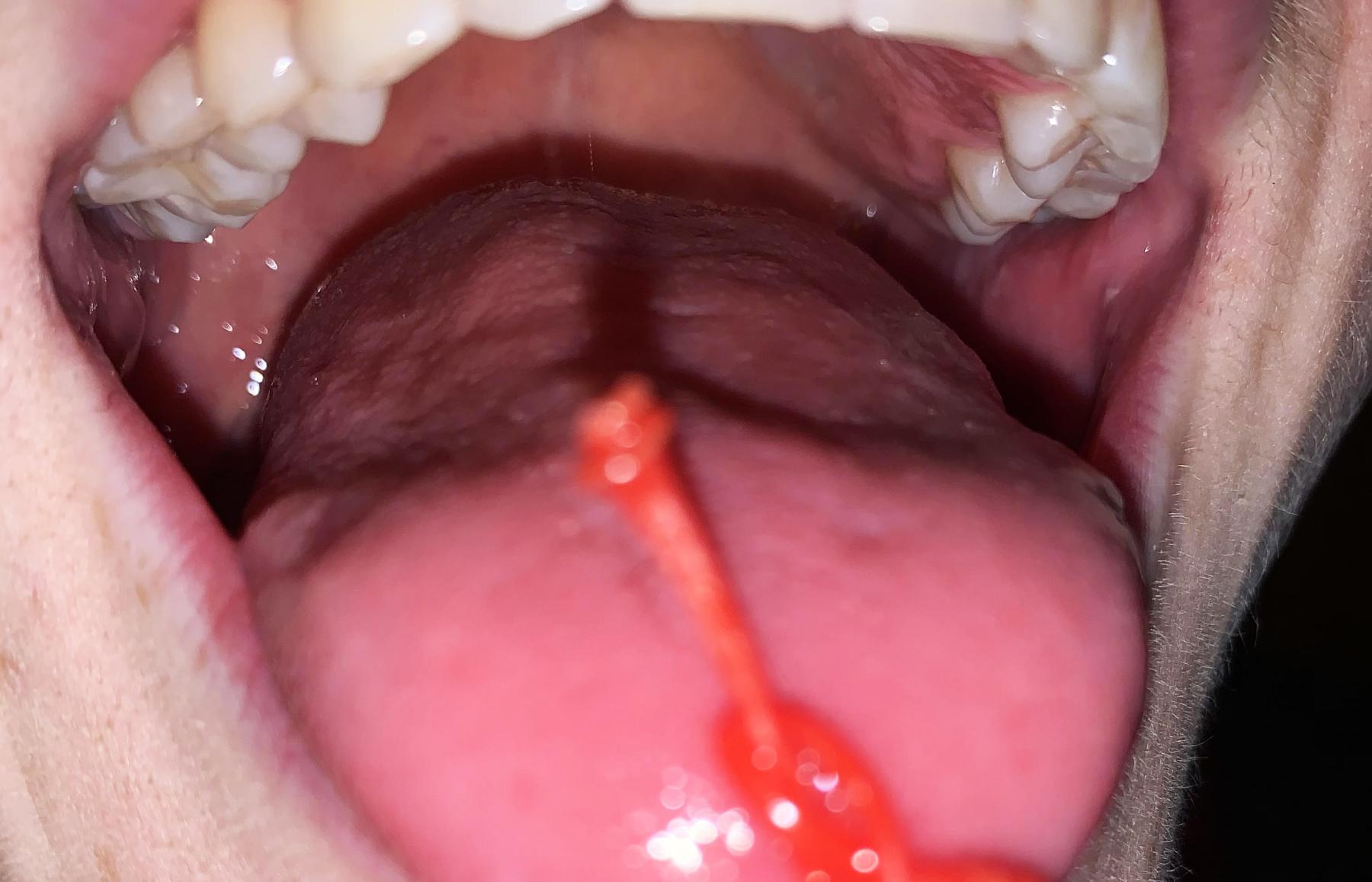Document 3. Beside this file is an image I saw on Tumblr. It is an ad for a scent called E’au D’Héroïne, and on the bottom it reads: by Jork Weismann. There's a close-up shot of an opened mouth, a tilted back jaw, with oozy champagne-colored liquid spilling out generously. I was attracted to this image because of its wetness, vulnerability, and sexiness.
I became obsessed with the notion of oozing substances in my third year of art school. But the curiosity started at an earlier age. It began with the first nutrients I ever consumed—the milk from my mother’s nipples. That is, how it came to be and how her body could produce it for my consumption. Later in life, there was a different kind of ooz that caught my curiosity. It was the feeling of wetness I first encountered between my legs after a basement make-out sesh. I gradually came to associate moments of intimacy, moments of pleasure and vulnerability with these involuntary oozing liquids from our orifices. We are made of water more than anything else and held together by a semi-permeable skin sack.

Sometimes, the word fluidity is associated with a personality characteristic: a type of laid-back openness. It seems in our fast-paced, highly controlled culture to be sought after. But only to a certain limit. Being able to handle flux and ride life’s waves is a valuable skill, but it is not synonymous with privileged passivity. I think we are afraid of what it really means to be open wide. Have you ever sat, after orgasm, with your legs spread apart? To be wet is to be vulnerable. There are so many associations with wetness: To be pure, clean, close to god-li-ness. To be cold, or surrounded in warmth, to be naked. To be connected, to nurture, to climax. To grieve, to fight, to flee. Becoming wet with our own fluids is the essence of experiencing this life. But we spend so much of our time trying to prevent our excretions and what feelings they might come with.
In an interview, artist Paul McCarthy remarked that “we’re taught to be disgusted by our fluids. Maybe it’s related to our fear of death.”1 He could not have put it better. We are innately terrified of death, and everything our unconscious and conscious minds associate with death: weakness, lack of mobility, pain, loneliness, emptiness, loss of control. Our fluids signify a loss of control. It’s a reminder that we are animals. We shit ourselves when we die. Psychologist and Buddhist teacher Tara Brach advises her students: “When we look directly at the bandaged place without denying or avoiding it, we become tender toward our human vulnerability.”2 Suffering occurs out of resistance to what is felt, resistance to the reality of disappointment, failure, or grief. It occurs when we try with all our might to wipe up our fluids before anyone-god forbid-notices.
